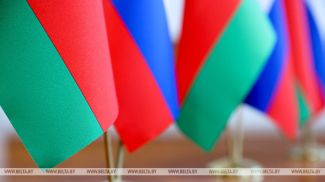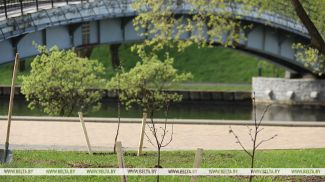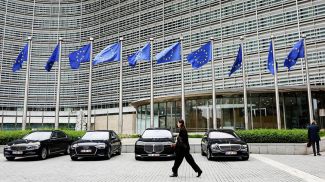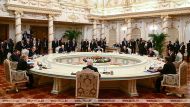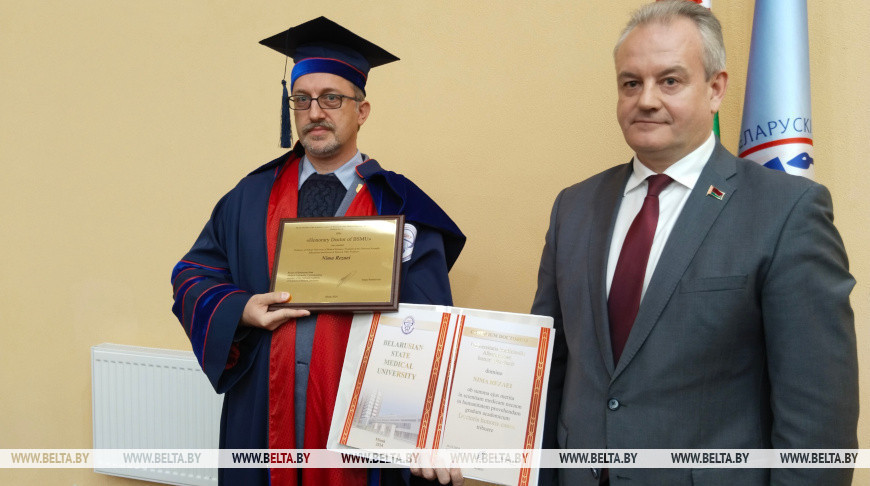
MINSK, 23 May (BelTA) - Over 2,500 international students are currently studying at Belarusian State Medical University (BSMU), Rector of BSMU Sergei Rubnikovich told BelTA.
BSMU places great emphasis on international cooperation, according to Sergei Rubnikovich. “We have over 150 partner universities in more than 30 countries. Over 2,500 international students are studying at the university and more than 500 doctors and specialists are undergoing training in clinical residency. Students come from Europe, America, and Africa, China. Many students from Germany, Poland, and the Baltic states choose our university, recognizing the quality of education and training programs. We are part of the World Federation for Medical Education, and our diploma is recognized in many countries,” he said.
Sergei Rubnikovich spoke about the recent visit of Nima Rezaei, professor of clinical immunology and allergy at Tehran University of Medical Sciences and president of the Universal Scientific Education and Research Network (USERN). Professor Nima Rezaei was awarded the title of Honorary Doctor of BSMU. During his week-long stay at the university, he delivered lectures. He highly praised the development of the institution and medical education. Following the visit, an agreement on student exchange was reached between BSMU and Tehran University of Medical Sciences. The agreement includes opportunities for participation in joint scientific and practical conferences and seminars, as well as internships in university clinics.
The rector noted that currently, the university has more than 100 Iranian students, with 21 students in clinical residency and 27 planning to enroll after completing the preparatory program. Last year, BSMU received accreditation from the Iranian Ministry of Health and Medical Education, which means that Iranian students studying there no longer need to validate their diplomas in their home country.
"The title of Honorary Doctor is awarded for significant contributions to the development of BSMU. If the partner is foreign, then interaction and the positioning of our university’s medical education on various global platforms are taken into account. Attention is also given to cooperation within academic mobility, including joint scientific and practical projects, which are carried out between professors, departments, and universities as a whole," Sergei Rubnikovich summed up.
BSMU places great emphasis on international cooperation, according to Sergei Rubnikovich. “We have over 150 partner universities in more than 30 countries. Over 2,500 international students are studying at the university and more than 500 doctors and specialists are undergoing training in clinical residency. Students come from Europe, America, and Africa, China. Many students from Germany, Poland, and the Baltic states choose our university, recognizing the quality of education and training programs. We are part of the World Federation for Medical Education, and our diploma is recognized in many countries,” he said.
Sergei Rubnikovich spoke about the recent visit of Nima Rezaei, professor of clinical immunology and allergy at Tehran University of Medical Sciences and president of the Universal Scientific Education and Research Network (USERN). Professor Nima Rezaei was awarded the title of Honorary Doctor of BSMU. During his week-long stay at the university, he delivered lectures. He highly praised the development of the institution and medical education. Following the visit, an agreement on student exchange was reached between BSMU and Tehran University of Medical Sciences. The agreement includes opportunities for participation in joint scientific and practical conferences and seminars, as well as internships in university clinics.
The rector noted that currently, the university has more than 100 Iranian students, with 21 students in clinical residency and 27 planning to enroll after completing the preparatory program. Last year, BSMU received accreditation from the Iranian Ministry of Health and Medical Education, which means that Iranian students studying there no longer need to validate their diplomas in their home country.
"The title of Honorary Doctor is awarded for significant contributions to the development of BSMU. If the partner is foreign, then interaction and the positioning of our university’s medical education on various global platforms are taken into account. Attention is also given to cooperation within academic mobility, including joint scientific and practical projects, which are carried out between professors, departments, and universities as a whole," Sergei Rubnikovich summed up.




